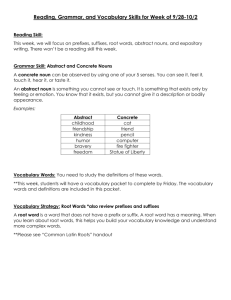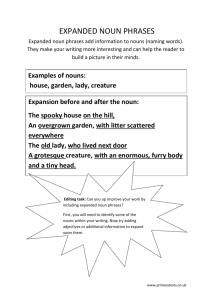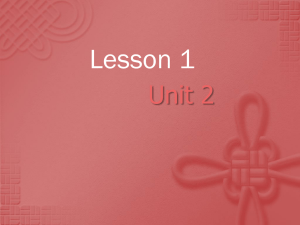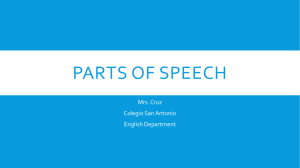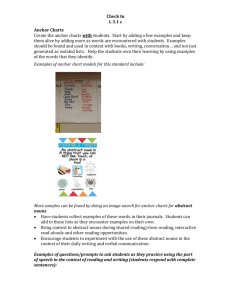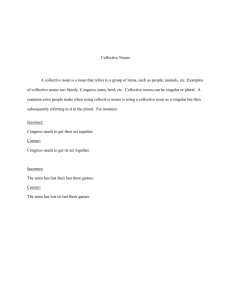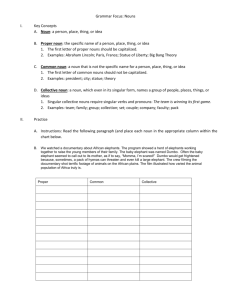Noun Information Sheet - Mountain Brook City Schools
advertisement
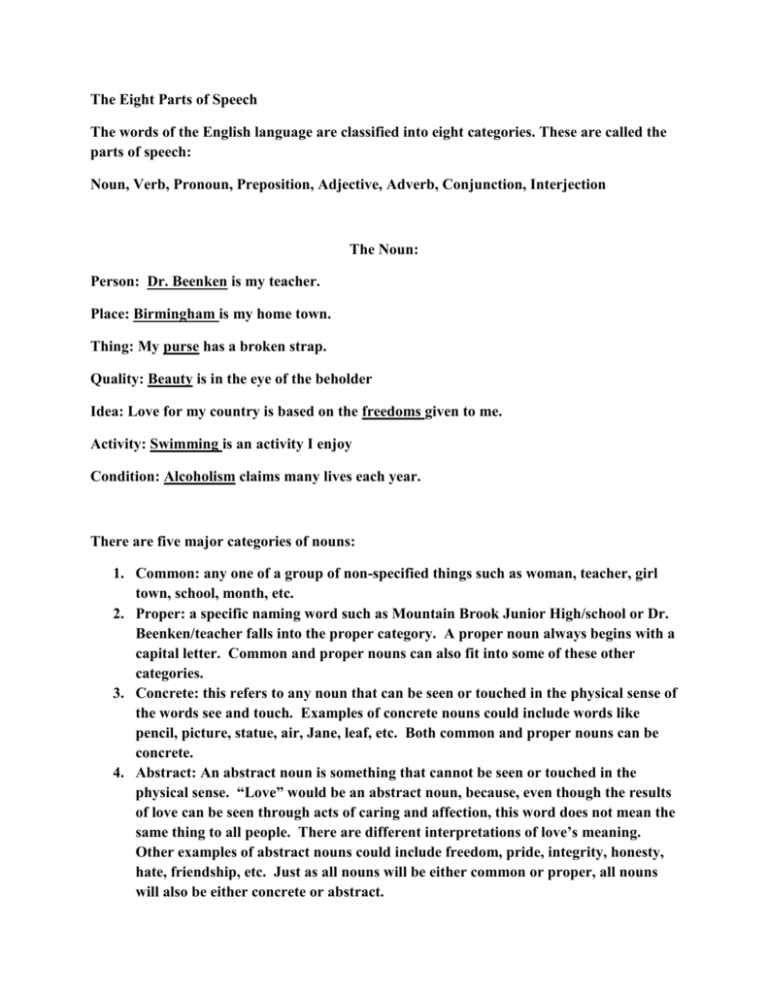
The Eight Parts of Speech The words of the English language are classified into eight categories. These are called the parts of speech: Noun, Verb, Pronoun, Preposition, Adjective, Adverb, Conjunction, Interjection The Noun: Person: Dr. Beenken is my teacher. Place: Birmingham is my home town. Thing: My purse has a broken strap. Quality: Beauty is in the eye of the beholder Idea: Love for my country is based on the freedoms given to me. Activity: Swimming is an activity I enjoy Condition: Alcoholism claims many lives each year. There are five major categories of nouns: 1. Common: any one of a group of non-specified things such as woman, teacher, girl town, school, month, etc. 2. Proper: a specific naming word such as Mountain Brook Junior High/school or Dr. Beenken/teacher falls into the proper category. A proper noun always begins with a capital letter. Common and proper nouns can also fit into some of these other categories. 3. Concrete: this refers to any noun that can be seen or touched in the physical sense of the words see and touch. Examples of concrete nouns could include words like pencil, picture, statue, air, Jane, leaf, etc. Both common and proper nouns can be concrete. 4. Abstract: An abstract noun is something that cannot be seen or touched in the physical sense. “Love” would be an abstract noun, because, even though the results of love can be seen through acts of caring and affection, this word does not mean the same thing to all people. There are different interpretations of love’s meaning. Other examples of abstract nouns could include freedom, pride, integrity, honesty, hate, friendship, etc. Just as all nouns will be either common or proper, all nouns will also be either concrete or abstract. 5. Collective: A collective noun is a word that is singular in form but refers to something that includes more than one member or number. Examples could include flock, pack, troop, army, family, congregation, school, herd, collection. A helpful way to remember this type of noun is to think about a collection you might have. I collect cardinals, but if you had only one cardinal, that would not be considered a collection.

